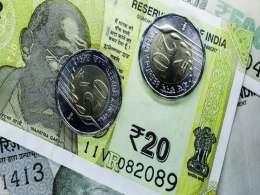The risk of militants striking again in India worries many investors who fear that a second attack similar to last year's Mumbai raids could shake what has so far proved to be a resilient economy.
In some ways, last year's attacks in which Pakistani-based militants killed 166 people appear a distant memory. While they ratcheted up tensions with Pakistan, they failed in a principal aim -- to bring the two nuclear-armed foes to conflict.
Foreign investors bought more than $15 billion in Indian shares this year, helping local stocks gain nearly 80 percent, in a vote of confidence for the trillion-dollar Indian economy.
But the Mumbai raids forced investors to consider that any new attack could spark regional tension and panic in an economy that is just recovering from the global economic slowdown.
"While India has made some improvements to its counter-terrorism capabilities, it remains vulnerable to terrorist activities," wrote Maria Kuusisto of Eurasia Group.
"Another high-profile, mass-casualty attack would lead to intense domestic pressure on Delhi to adopt a more firm policy towards Pakistan and even retaliate, which would raise regional tensions."
Businesses in Mumbai, which was also a target in serial bomb blasts in 1993, lost about $800 million after the 2008 raids. The stock exchange was shut for a day and hotels and airlines struggled as countries issued travel advisories.
Another strike in India could also prove a political distraction for a government that is gaining traction with financial reforms in such sectors as insurance and pensions.
Companies are now spending millions on revamped security, adding to the costs of doing business in India. About 80 firms, including software exporters, hotels and energy companies have applied for paramilitary cover.
"26/11 was big and we are constantly concerned about the safety of our facilities, our workforce," S. Mahalingam, chief financial officer of Tata Consultancy Services, India's top software exporter, told the Reuters India Investment Summit in New Delhi this week.
STOCKS RESILIENT?
One follow-on militant attack nearly triggered war in 2002.
India and Pakistan, which have fought three wars, initiated the biggest military build-up on their border in 2001 after an attack on the Indian parliament that New Delhi blamed on Pakistan-based guerrilla groups.
But it was another attack on an Indian army camp in Kashmir five months later that raised real fears the two nations may be on the brink of war. Some embassies advised their citizens to evacuate New Delhi. A flurry of diplomatic peace missions led by the United States eased the situation.
Indian markets have a mixed record of responding to attacks. In the limited three-month Kargill conflict with Pakistan in 1999, the main stock index actually rose -- by a third.
In 2001, stocks fell 8 percent in the two tense weeks after the parliament raid but recovered losses in the next fortnight.
After the 2002 army camp raid, stocks, already hit by uncertainty sparked by huge religious riots in Gujarat state, lost a tenth of their value in the following eight days and did not recover for the rest of the year until tensions began easing.
Seven years on from that, investors are drawn to India's near 7-percent economic growth and promise of stability after the Congress party-led government won re-election in May.
"The risk perception has certainly deteriorated. This, however, hasn't deterred investors from participating in, and benefiting from, the India opportunity," said Manoj Vohra, head of the Economist Intelligence Unit in India.
Investors simply have to get used to the new reality, Kevan Watts, country head of Bank of America-Merrill Lynch, told the Reuters Summit.
"It is the reality all across the world. So you put your business continuity plan in place, you put up as much physical security as you can, and you just get on with your business."





